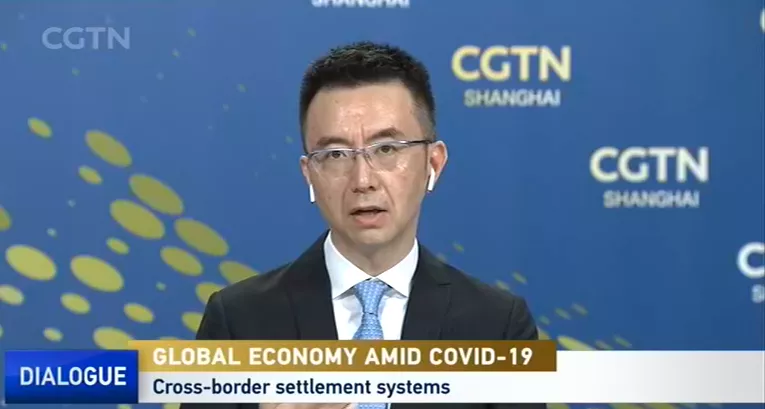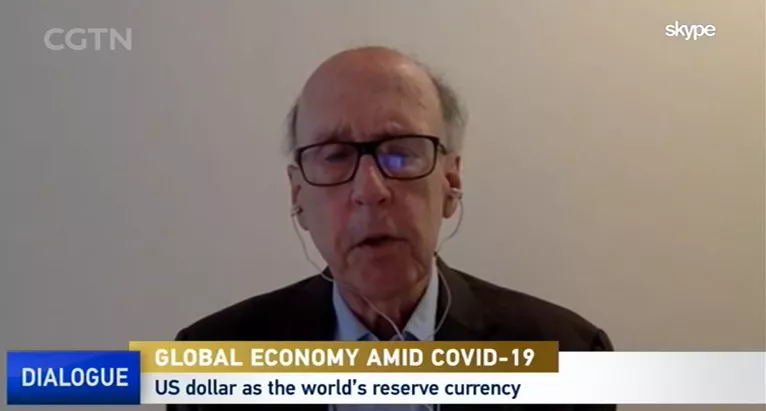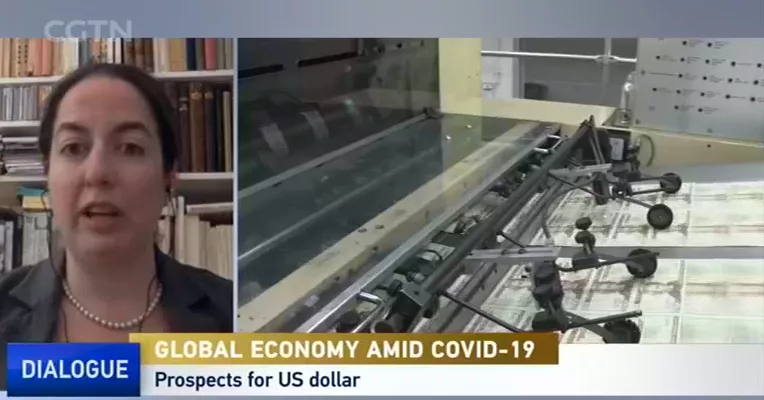
-
 86-21-63895588
86-21-63895588
-
 No.1, Lane 600, Nanchezhan Road, Huangpu District, Shanghai 200011
No.1, Lane 600, Nanchezhan Road, Huangpu District, Shanghai 200011
Release time:2020-08-27
Click the picture to watch the full video
The U.S. economy and financial system have been severely affected by the Covid-19 crisis. Although at this stage investors demand for the US dollar and US dollar assets is high, concerns over the greenback losing its world leading position are widespread. Because of its reserve domination for international business, the US dollar has long been enjoying the status of a default safe-haven currency. Under the current situation, could the dollar be dethroned as the main reserve currency and what would this trend bring to the global economy? With the growing popularity of the Chinese renminbi (RMB) in more and more countries, what role is it poised to play on the world stage?
On the evening of June 26, 2020, Jun Qian, Professor of Finance and Executive Dean of the Fanhai International School of Finance, Fudan University, was exclusively interviewed by the China Global Television Network to comment on these hot topics. Moreover, he delved into an in-depth discussion with Dr. Stephen Roach, Senior fellow at Yale University’s Jackson Institute of Global Affairs and former chairman of Morgan Stanley Asia, and Rebecca Christie, visiting researcher at the European think tank Bruegel.

Prof. Qian pointed out that judging from the history of the last global financial crisis and subsequent recovery phase, the US dollar will not lose it position in the short term. In fact, U.S. dollar assets, especially the US Treasuries, are still the safest assets in the eyes of global institutional investors. At present, due to the impact of the Novel Coronavirus pandemic, the US economy has suffered an unprecedented hit. In the medium to long-term perspective, the high national debt ratio (US government debt as a proportion of GDP) is a long-term structural problem that might affect the American economy and the dollar’s status quo.
It is worth nothing that recently, the US capital market (including the stock market) has rebounded strongly following the sharp decline, triggered by the pandemic outbreak. The reason for this is not the rapid recovery of the American economy, but rather the massive fiscal and monetary stimulus measures launched by the US government. Similar to the previous crisis, the US macro policy easing and fiscal-support instruments might pose risks and problems to the world economy, especially to the emerging-market countries.
When it comes to the Eurozone, Prof. Qian noted that Germany, the largest economy in the Zone, has also adopted a proactive monetary policy in the face of the Covid-19 danger. Besides, the German government’s debt ratio is far lower, thus providing more space for fiscal interventions. Overall, the fiscal policy of the Eurozone has not been as radical as that of the United States.
“Against this background, China’s various measures and policies in response to the novel pandemic have been relatively moderate, leaving vast room for both monetary and fiscal potential adjustments, Prof Qian Jun stated. “In addition, the Chinese government debt as a share of GDP is the lowest among the developed and emerging economies in the world.”

Professor Stephen Roach also warned of the extremely low savings rate and the long-term current account deficit− persistent structural problems of the US economy, which have been further aggravated by the pandemic. On top of that, a series of US deglobalization measures enacted might overshadow the US declining leadership position. A combination of multiple factors is likely to cause a sharp fall in the US dollar, which is expected to plunge 35% against other major currencies. In fact, the USD has already fallen by more than 20% in the short-term.
On the other hand, Prof. Roach remarked, “The Euro is undervalued. Frankly, I was not optimistic about the Eurozone, and even thought that the Euro might suffer a fatal blow when the European debt crisis broke out, but obviously this is not the case anymore. To tell the truth, when the dollar falls, the Euro could rebound to a certain extent.”
The uncertain USD and the RMB internationalization
What opportunities and challenges could the US dollar trends bring to the RMB?
According to Prof. Qian Jun, it is beneficial to have multiple alternative currencies besides the USD. The internationalization of the RMB is not equal to a complete replacement of the US dollar. Rather, it is an opportunity to offer the global financial system an additional currency, which could be the Chinese Yuan itself or a combination of the Euro, Yen, and RMB.
In recent years, the position of the Chinese Yuan as a cross-border payment and international trade settlement currency has been steadily improving, but its status as a reserve currency needs further improvement. In particular, the proportion of RMB held as reserve assets by major central banks is still relatively low. In this train of thought, how to enhance the role of the RMB as a world reserve currency? For this to happen, Prof. Qian stressed the crucial need for capital to flow in and out of China on a larger scale and in an orderly manner. A new focal point should be found to allow larger capital to enter and exit the country more freely, while ensuring the risk of Chinese capital projects is under control. As a matter of fact, an increasing number of countries and regions are aware of the shortcomings of the USD dominance. After the United States unilaterally withdrew from the Iran nuclear deal, and imposed sanctions against Iran, major EU countries independently created the INSTEX payment system to facilitate non-US transactions and bypass the US-led swift system. At the same time, China developed the CIPS cross-border interbank clearing and settlement system that uses RMB as the main payment method. While it has achieved good results, the CIPS is still smaller in scale in comparison to the SWIFT system.

In this regard, Rebecca Christie emphasized that the main function of the EU’s INSTEX payment system was to provide humanitarian assistance to Iran. Therefore, the leading position of SWIFT is not threatened. In the view of Prof. Stephen Roach: “The United States is moving away from globalization and focusing on decoupling itself from the world. This is a fatal combination. In the future, major economies will use financial tools and intermediaries, such as blockchain and cryptocurrencies. Digitally-enabled transaction payments are here to stay− they are the future.”